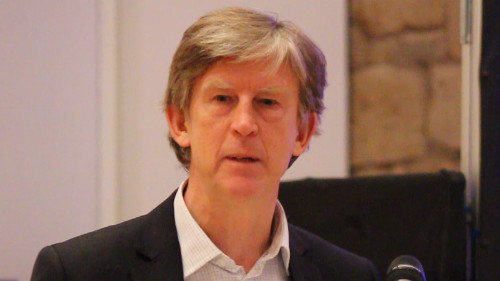
I am not myself a copyright scholar, but I have fallen into an association with that trade by virtue of my leadership of the review of intellectual property, innovation and growth which was commissioned more than two years ago and published in May 2011. One of the strongest points which emerged from my review was the frequency with which political decisions have been justified by economic goals but shaped with disregard for available economic evidence. We need a broader evidence base and we look to research projects such as those being discussed today to provide it. I understand, however, that this can only be done if you have strong and trusting partnerships with businesses bringing to your research laboratory the knowledge, insight and, crucially the data, held by businesses. This offers a significant test of our ability to move beyond the copyright wars.
One of the strongest points which emerged from my review was the frequency with which political decisions have been justified by economic goals but shaped with disregard for available economic evidence.
There are also important international opportunities in this field. The need for Europe to achieve a digital single market is but one of a number of strategic necessities in a continent struggling for more innovation and improved productivity. If the business leaders of Davos are right that the Eurozone crisis is past its point of greatest danger, growth-enhancing structural reforms to the European economy might just be the order of the day; indeed the order of the next decade.
Beyond Europe, there is also a rich seam of evidence emerging from the changing business models of companies whose fortunes depend upon a successful and agreed regime of copyright protection. From the sheer energy of the creative economies of China and India to the deployment of Fair Use laws in territories like Singapore and Israel, there is much for you to investigate.
Our broader goal should be to place CREATe at the heart of a new wave of thinking needed to address the needs of the UK Creative Economy in the third decade of the internet. The largely unrecognised agenda here extends across education and skills; competition and regulation; R&D; access to finance and arts funding; as well as copyright. It implicates the digital strategies of key UK institutions like the BBC, the Open University, the Arts Councils and the British Library. In this context, I am currently working with colleagues at Nesta to set out a policy agenda for the Internet’s third decade.
 Resource
Resource